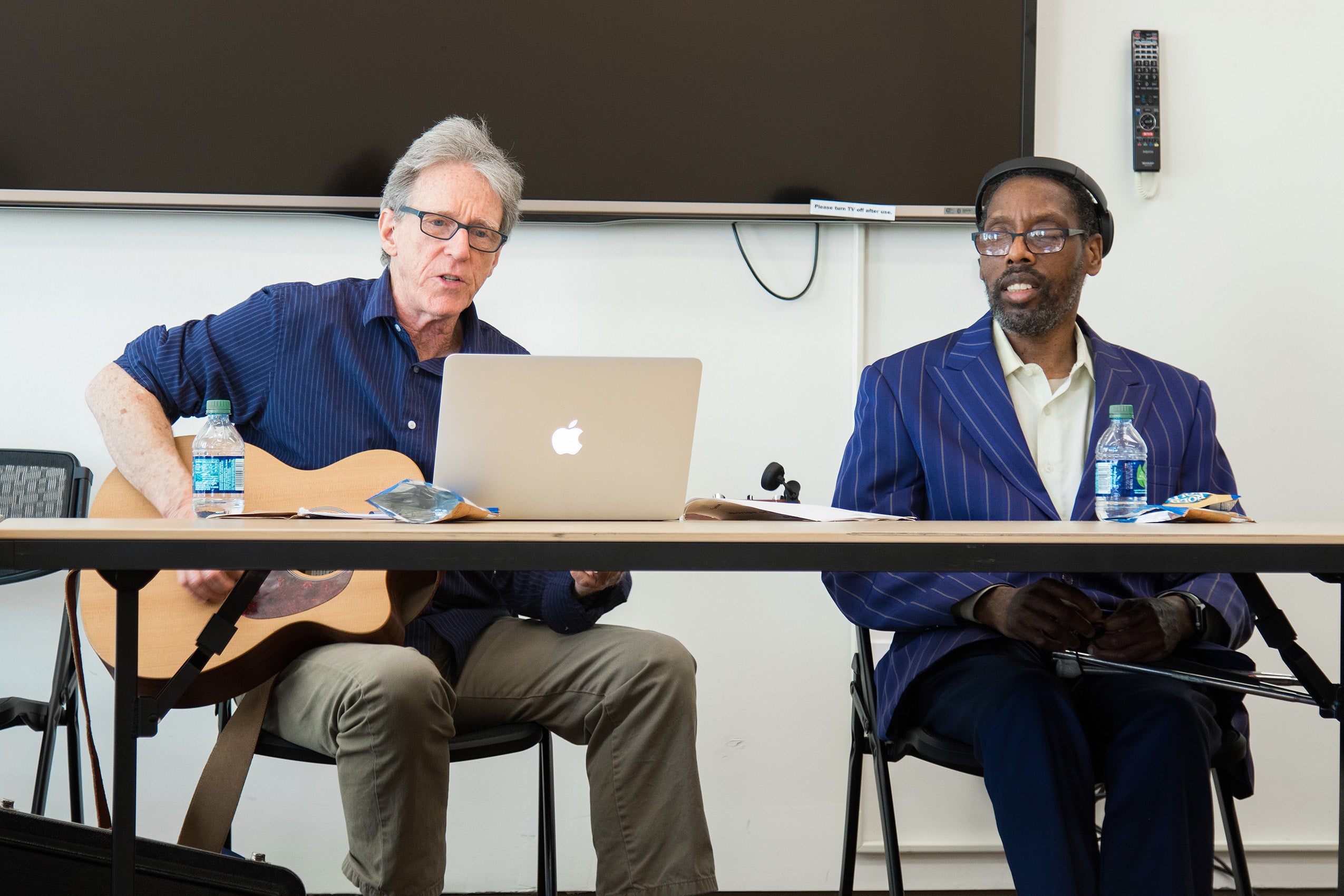When Steve Holmes was a conscientious objector to the Vietnam War in 1969, he had to find service work. The Massachusetts native chose the Fernald State School in Waltham. The conditions were so horrible, he says, he had to figure out a way to do something to help the disabled people who lived there—most of whom were uncommunicative—while still adhering to his fundamental belief in peace. What began as service work to avoid the war quickly became a lifelong passion. Today, Holmes, who recently retired as administrative director of the Self Advocacy Organization of New York State, or SANYS, is one of the foremost disability rights advocates in the nation, and a champion of self-advocacy.
Chester Finn has been a disability rights advocate since childhood, when he successfully convinced his parents he was capable of doing things they didn’t initially believe he could. He went on to be president of SANYS, co-founder of the charity Community Empowerment Programs and a member of the National Council on Disability, appointed by then President Barack Obama ’91.
The two advocates spoke to students at Harvard Law School on March 8, in a workshop presented by the Harvard Law School Project on Disability, or HPOD, introduced by its executive director Michael Stein ’88. The workshop is part of a series of HPOD trainings and advocacy projects supported by a three-year grant from the law firm Jones Day.
“Self advocacy is about people speaking up for themselves and others. It’s also a political movement,” Holmes told attendees, including Massachusetts State Representative Tom Sannicandro.
“It’s all across the scope of our lives that we work on,” Finn said, to have the power to tell a state official or a service provider your needs—and be taken seriously.
As in many social movements, he said, individual members have their disagreements, but overall, they fight for each other’s rights.
“To be a self advocate, you have to sometimes be loud or rowdy, especially when there are issues we advocate for, and when we think people aren’t listening to us,” Finn told the audience. He cautioned against listening to the people who say “you can’t.” He said: “If I listened to all the stuff people said I couldn’t do, I would have been afraid to come out of the house. You have to number one believe in yourself, and work with others to achieve what you want.”
Both Finn and Holmes have worked with Stein on developing storytelling projects to help people with disabilities talk about how they make their own choices and where they fit in the world. Sometimes those stories are communicated through music. At the end of the workshop, Holmes played his guitar, and he and Finn sang some songs and discussed a few others, including “F.U.I.Q.” that embodies the rowdy spirit Finn had described.
Songs help create the spirit of a movement, Holmes said. With the energy of this movement, he added, “people with disabilities are part of what’s changing our world.”
